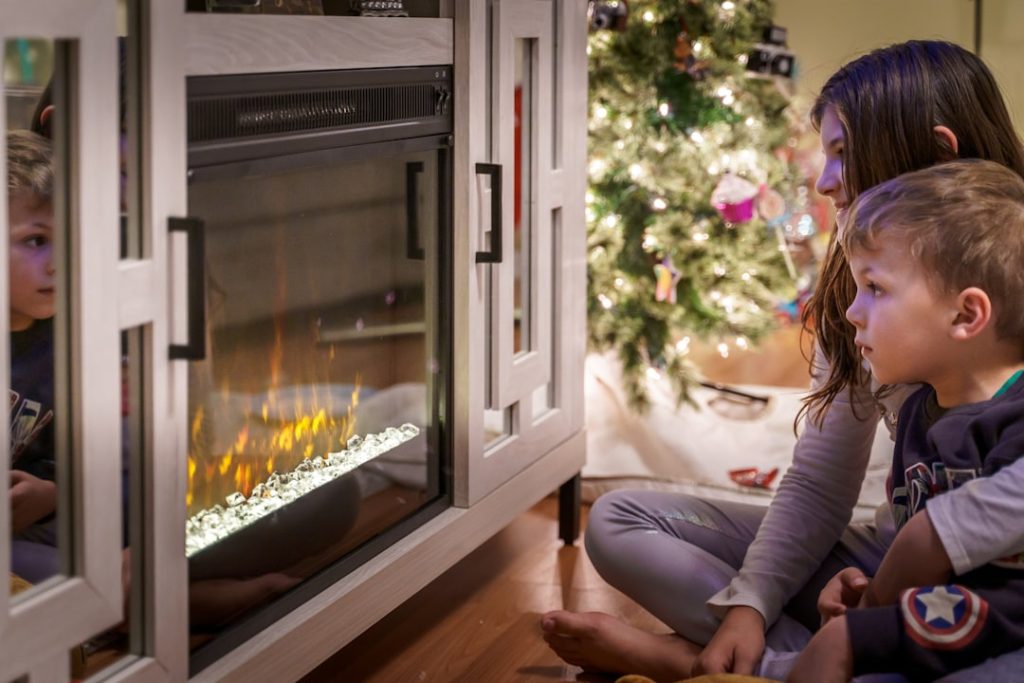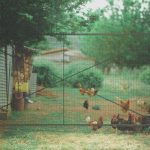Creating a comfortable chicken coop is essential for the health and well-being of your flock. A well-designed coop should provide protection from predators and harsh weather conditions while offering a secure environment for roosting and egg-laying. Proper ventilation is crucial to prevent the buildup of ammonia from droppings, which can cause respiratory issues in chickens.
Adequate lighting is also important to encourage egg production and maintain natural daylight patterns. Nesting boxes are a vital component of a comfortable coop. These should be lined with clean bedding materials such as straw or wood shavings to create a cozy space for hens to lay eggs.
Regular cleaning and replacement of bedding are necessary to maintain a hygienic environment. Perches should be installed for chickens to roost at night, and sufficient space should be provided for daytime movement. The coop’s size should be appropriate for the number of chickens in the flock, allowing them to move freely.
Proper insulation is essential to regulate temperature, keeping the coop warm in winter and cool in summer. Extreme temperatures can negatively impact chicken health and egg production. The coop must be predator-proof, with secure latches and fencing to protect against threats such as foxes, raccoons, and birds of prey.
By providing a comfortable, well-designed coop, chicken owners can ensure the health, happiness, and productivity of their flock. This attention to detail in coop construction and maintenance contributes to better egg production and overall flock well-being.
Table of Contents
Key Takeaways
- Provide proper ventilation, insulation, and roosting space to create a comfortable coop for your chickens.
- Offer a balanced diet of grains, greens, and protein to ensure nutritious feed for your flock.
- Allow at least 10 square feet of space per chicken to ensure ample space for roaming and exercise.
- Regularly clean and maintain the coop to ensure clean living conditions for your chickens.
- Provide enrichment activities such as dust baths, perches, and toys to keep your flock mentally and physically stimulated.
- Monitor your chickens for signs of illness and seek veterinary care if necessary.
- Spend time with your flock, handle them gently, and provide regular care to build a strong relationship with your chickens.
Providing Nutritious Feed
Essential Nutrients for Healthy Chickens
To keep your chickens healthy and productive, it’s essential to provide them with a balanced and nutritious diet. A good quality commercial feed formulated specifically for laying hens is a great option, as it contains all the essential nutrients they need for egg production and overall health. Additionally, supplementing their diet with kitchen scraps, fruits, vegetables, and grains can provide added nutrients and variety to their diet.
Proper Feed Storage and Access to Clean Water
It’s important to ensure that the feed is kept in a dry and secure location to prevent spoilage and contamination by pests. Another important aspect of providing nutritious feed is ensuring that the chickens have access to clean and fresh water at all times. Water is essential for egg production, digestion, and overall health, so it’s crucial to regularly check and refill their waterers to prevent dehydration.
Additional Essentials for Optimal Health
Additionally, providing access to grit and oyster shells is important for chickens, as it helps with digestion and provides essential calcium for strong eggshells. By providing a balanced and nutritious diet, you can ensure that your chickens are healthy, happy, and productive. Providing nutritious feed is essential for the health and well-being of your flock.
Monitoring and Adjusting Feed Intake
A balanced diet that includes a good quality commercial feed, supplemented with kitchen scraps and other natural foods, will ensure that your chickens receive all the essential nutrients they need for optimal health and egg production. It’s important to monitor their feed intake and adjust accordingly based on their age, breed, and production levels. Additionally, providing access to fresh water, grit, and oyster shells will contribute to their overall health and well-being. By providing nutritious feed, you can ensure that your chickens are healthy, happy, and productive members of your flock.
Ensuring Ample Space for Roaming

Chickens are naturally active animals that require ample space to roam and forage. Providing enough space for your chickens to roam not only promotes physical activity but also reduces stress and aggression within the flock. The general rule of thumb is to provide at least 4 square feet of space per chicken in the coop and 10 square feet per chicken in the outdoor run.
This allows them to move around freely, stretch their wings, and engage in natural behaviors such as dust bathing and foraging for insects. In addition to providing ample space in the coop and outdoor run, it’s important to allow your chickens access to a larger free-range area if possible. This will give them the opportunity to explore and forage for natural foods such as grass, seeds, and insects, which can contribute to a more varied and nutritious diet.
Providing ample space for your chickens to roam not only promotes their physical health but also contributes to their mental well-being by allowing them to engage in natural behaviors. Ensuring ample space for your chickens to roam is crucial for their overall well-being. Chickens that are confined to small spaces can become stressed, aggressive, and prone to health issues such as obesity and feather pecking.
Providing enough space in the coop, outdoor run, and free-range area allows them to engage in natural behaviors such as scratching, pecking, and dust bathing, which are essential for their physical and mental health. By ensuring ample space for your chickens to roam, you can promote a healthy and harmonious environment within your flock.
Maintaining Clean Living Conditions
Maintaining clean living conditions is essential for the health and well-being of your chickens. A clean coop not only reduces the risk of disease but also provides a comfortable and hygienic environment for your flock. Regularly cleaning out the coop by removing soiled bedding, droppings, and debris helps prevent the buildup of harmful bacteria and ammonia fumes that can lead to respiratory issues.
Additionally, regularly disinfecting the coop with a poultry-safe disinfectant can help control parasites and reduce the risk of disease transmission. In addition to cleaning the coop, it’s important to regularly clean and refill their waterers and feeders to prevent contamination by mold, bacteria, or pests. Providing clean water and feed not only promotes good health but also encourages proper hydration and nutrition.
Furthermore, regularly inspecting the coop for signs of wear and tear such as broken latches or holes in the fencing can help prevent predators from gaining access to your flock. By maintaining clean living conditions, you can ensure that your chickens are healthy, happy, and free from disease. Maintaining clean living conditions is crucial for the overall health and well-being of your flock.
A clean coop not only reduces the risk of disease but also provides a comfortable and hygienic environment for your chickens. Regularly cleaning out the coop by removing soiled bedding, droppings, and debris helps prevent the buildup of harmful bacteria and ammonia fumes that can lead to respiratory issues. Additionally, regularly disinfecting the coop with a poultry-safe disinfectant can help control parasites and reduce the risk of disease transmission.
By maintaining clean living conditions, you can ensure that your chickens are healthy, happy, and free from disease.
Offering Enrichment Activities
Offering enrichment activities is important for keeping your chickens mentally stimulated and engaged. Chickens are naturally curious animals that enjoy exploring their environment and engaging in natural behaviors such as scratching, pecking, dust bathing, and foraging for food. Providing enrichment activities such as hanging treats or vegetables from strings or placing objects such as logs or stumps in their outdoor run can encourage natural behaviors and provide mental stimulation.
Another way to offer enrichment activities is by providing them with access to a dust bathing area filled with sand or diatomaceous earth. Dust bathing is an essential behavior for chickens as it helps keep their feathers clean and free from parasites. Additionally, providing them with access to perches or platforms in the coop or outdoor run allows them to roost at different heights and provides opportunities for exercise and exploration.
By offering enrichment activities, you can ensure that your chickens are mentally stimulated and content within their environment. Offering enrichment activities is essential for keeping your chickens mentally stimulated and engaged. Chickens are naturally curious animals that enjoy exploring their environment and engaging in natural behaviors such as scratching, pecking, dust bathing, and foraging for food.
Providing enrichment activities such as hanging treats or vegetables from strings or placing objects such as logs or stumps in their outdoor run can encourage natural behaviors and provide mental stimulation. Additionally, providing them with access to perches or platforms in the coop or outdoor run allows them to roost at different heights and provides opportunities for exercise and exploration. By offering enrichment activities, you can ensure that your chickens are mentally stimulated and content within their environment.
Monitoring for Signs of Illness

Recognizing Common Signs of Illness
Common signs of illness in chickens include lethargy, decreased appetite, abnormal droppings, respiratory issues, lameness, or changes in comb color or appearance. Additionally, keeping an eye out for external parasites such as mites or lice is important as they can cause discomfort and lead to health issues if left untreated.
Regular Handling and Observation
In addition to regular observation, it’s important to handle your chickens regularly to check for any abnormalities such as lumps or bumps on their body. By familiarizing yourself with what is normal for your flock, you’ll be better equipped to notice any changes that may indicate illness or injury.
Isolating and Seeking Veterinary Care
If you suspect that one of your chickens is unwell, it’s important to isolate them from the rest of the flock to prevent the spread of disease and seek advice from a veterinarian if necessary. By monitoring for signs of illness, you can ensure that any health issues are addressed promptly, leading to a healthier and happier flock.
Building a Strong Relationship with Your Flock
Building a strong relationship with your flock is important for their socialization and overall well-being. Spending time with your chickens on a regular basis not only allows you to observe their behavior but also helps them become more comfortable around you. Chickens are social animals that enjoy interaction with their caretakers, so spending time talking to them or offering treats can help build trust and create a positive bond between you and your flock.
Another way to build a strong relationship with your flock is by handling them gently on a regular basis. By picking them up and holding them close to you, you can help them become more accustomed to human interaction and reduce stress when it comes time for health checks or handling in the future. Additionally, providing them with a calm and peaceful environment by minimizing loud noises or sudden movements can help reduce stress levels within the flock.
By building a strong relationship with your flock, you can create a harmonious environment where they feel safe, secure, and content. Building a strong relationship with your flock is important for their socialization and overall well-being. Spending time with your chickens on a regular basis not only allows you to observe their behavior but also helps them become more comfortable around you.
Chickens are social animals that enjoy interaction with their caretakers so spending time talking to them or offering treats can help build trust and create a positive bond between you and your flock. Another way to build a strong relationship with your flock is by handling them gently on a regular basis. By picking them up and holding them close to you you can help them become more accustomed to human interaction reducing stress when it comes time for health checks or handling in the future.
Additionally providing them with a calm peaceful environment by minimizing loud noises or sudden movements can help reduce stress levels within the flock By building a strong relationship with your flock you can create a harmonious environment where they feel safe secure and content
If you’re looking for more information on how to keep happy chickens, you might want to check out this article on chicken coop portage. It provides valuable tips on how to properly move your chicken coop to ensure the happiness and well-being of your feathered friends.
FAQs
What are some tips for keeping chickens happy?
Some tips for keeping chickens happy include providing a spacious and clean coop, offering a balanced diet, ensuring access to fresh water, providing opportunities for exercise and foraging, and ensuring protection from predators.
Social interaction is very important for chickens as they are social animals. They thrive in the company of other chickens and benefit from a sense of community within their flock.
What are some signs that indicate a chicken is happy?
Signs that indicate a chicken is happy include active foraging, dust bathing, vocalizing contented clucks, and displaying relaxed body language such as open wings and a raised tail.
How does the environment impact a chicken’s happiness?
The environment plays a significant role in a chicken’s happiness. A clean and spacious coop, access to outdoor space, and protection from extreme weather conditions all contribute to a chicken’s overall well-being and happiness.
What are some common stressors for chickens?
Common stressors for chickens include overcrowding, lack of access to food and water, exposure to predators, extreme temperatures, and changes in their environment or routine.
Meet Walter, the feathered-friend fanatic of Florida! Nestled in the sunshine state, Walter struts through life with his feathered companions, clucking his way to happiness. With a coop that’s fancier than a five-star hotel, he’s the Don Juan of the chicken world. When he’s not teaching his hens to do the cha-cha, you’ll find him in a heated debate with his prized rooster, Sir Clucks-a-Lot. Walter’s poultry passion is no yolk; he’s the sunny-side-up guy you never knew you needed in your flock of friends!







